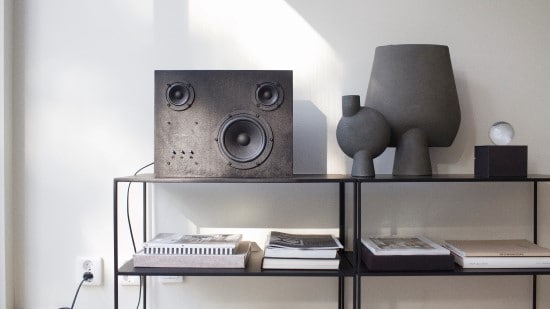EVER-INCREASING CIRCLES
A paradigm shift in the way products are designed, sold and continuously reused is helping the circular economy to gather pace
We must stop throwing things away if we’re going to save the planet and one area in desperate need of reform is tech.
Globally, discarded computers, smartphones, tablets and other electronic waste have a potential annual value of $62.5bn from the precious materials they contain, including gold, silver, copper, platinum, tungsten and indium. This is exacerbated by so-called ‘planned obsolescence’, where companies intentionally shorten the lifespan of products or make them impossible to repair.
This status quo is being challenged by Swedish speaker company Transparent, who are on a mission to become “the first circular tech brand” by making timeless, modular electronics that can be upgraded forever as new technologies emerge.
“There has to be a better way to manage our common resources because the way the industry works right now is… what’s the British word? Bonkers?”, co-founder Per Brickstad tells Cloud. “We continuously buy and throw away super-precious materials that could have a lifetime of a hundred years, and instead they get two. We believe there are better ways to do this that do not compromise on the user experience.”
This sounds ideological, but Transparent has already put this into practice with a range of wireless speakers made from glass, steel, stoneware, wood and aluminium. Their products come with instructions on how to dismantle them, while their circular services platform provides modular component upgrades when something needs replacing or repairing. Their latest product, the Light Speaker, is a Bluetooth-connected musical lantern that swaps a real flame with a sound-activated “vibrating bass-and-light element” to faithfully recreate the glow. Made from borosilicate glass and aluminium, it can be repaired or upgraded over time.
Made up of ex-Nokia engineers who left the Finnish telecommunications giant after their vision of a circular economy fell on deaf ears, Transparent are disruptors – masters of their own destiny, if you like – but, if a real global impact is going to be felt, it requires big business to play ball.
“For a long time, we tried to make that happen within Nokia. But big companies are slow and it’s hard for them to change their ways,” says Brickstad. “So we had to do it ourselves. We have to consider these things before developing the product, not after.”
Image credit: Transparent

 A paradigm shift in the way products are designed, sold and continuously reused is helping the circular economy to gather pace
A paradigm shift in the way products are designed, sold and continuously reused is helping the circular economy to gather pace

